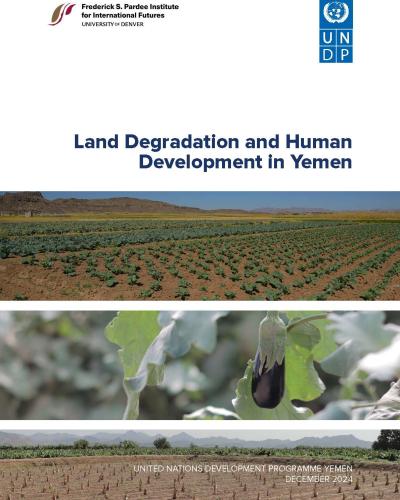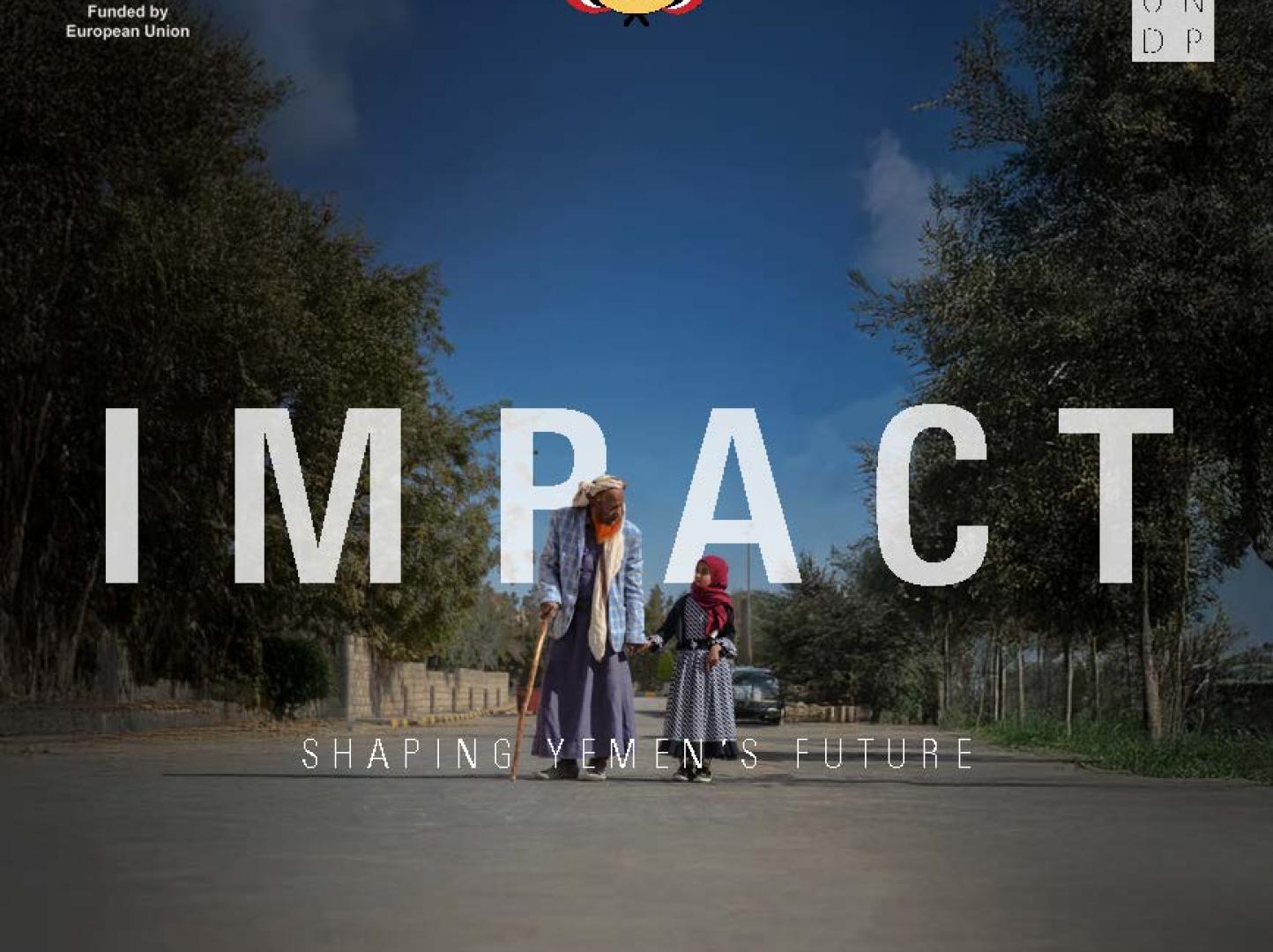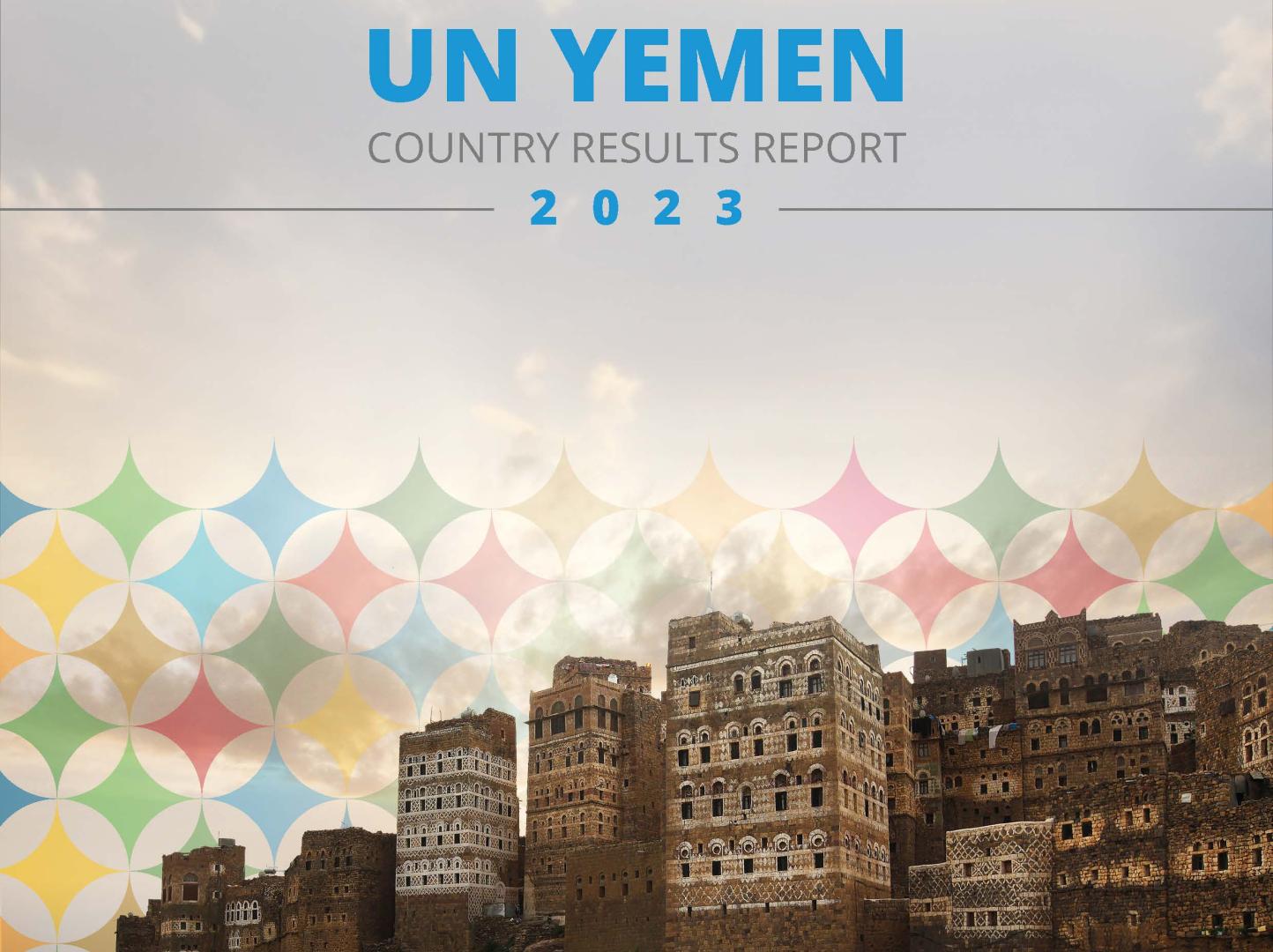UNDP Yemen: Land Degradation and Human Development in Yemen

This study, “Land Degradation and Human Development in Yemen,” was commissioned by UNDP in 2024 as part of a collaboration with the Frederick S. Pardee Institute for International Futures, Josef Korbel School of International Studies, University of Denver and climate researchers. Yemen is frequently said to be experiencing one of the worst development and humanitarian crises in the world after more than ten years of ongoing conflict. At the same time, it is among the countries most vulnerable to climate change and for decades has faced a worsening water crisis as well as land degradation (including deterioration of historical terracing systems), desertification and soil erosion. This report seeks to better understand how the above-mentioned phenomena could affect economic and human development in Yemen on immediate, medium and long-term timescales.
The report explores the links between climate change, land degradation and desertification, conflict, and human development outcomes in Yemen. This report begins with a review of the literature of the drivers, context, and intervening factors around land degradation and desertification in Yemen so far. This is followed by an analysis of historical subregional data on land degradation and climatic variables within the country. Turning toward the socioeconomic effects, the report first reviews literature on the pathways through which desertification can alter agricultural production and otherwise affect economic and human development. Finally, the report uses integrated modelling techniques and scenario analysis using the International Futures (IFs) model to explore the effect of degradation and restoration pathways on future development in Yemen. The IFs model has previously been applied to assess the effect of ongoing conflict in Yemen on human development and to examine possible recovery pathways in the Impact of War trilogy of reports and the Impact of Climate Change on Human Development produced by UNDP and the Frederick S. Pardee Institute for International Futures.





